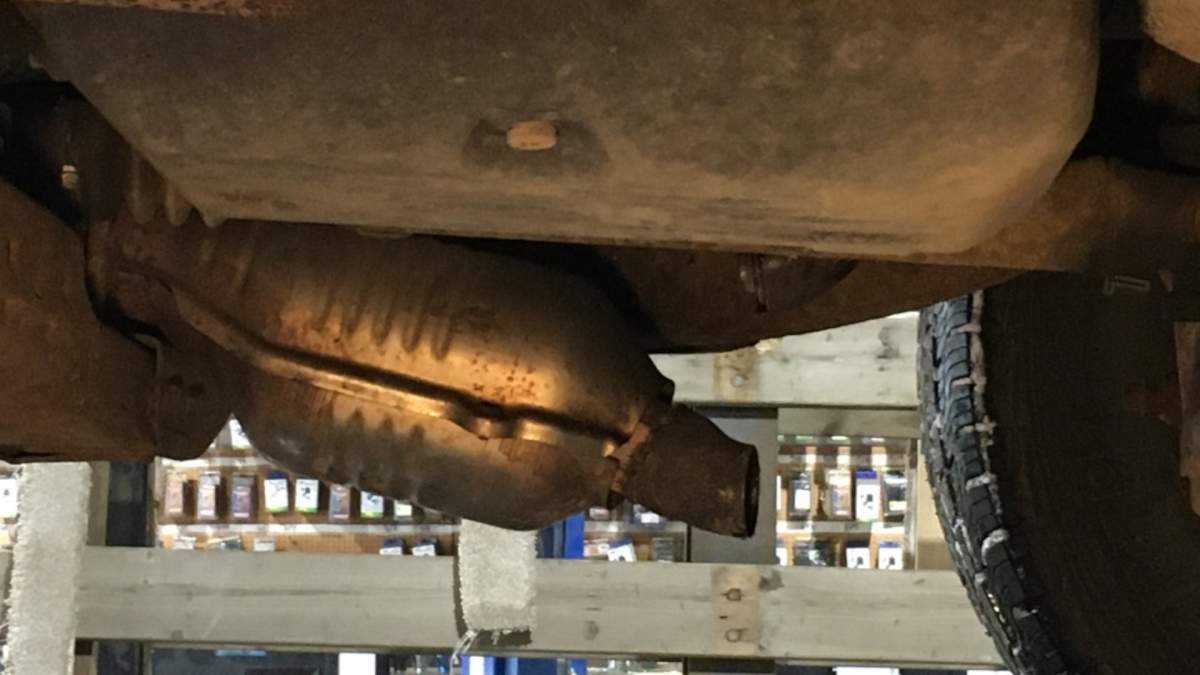Hamilton police say 68 charges were laid during a two-week campaign focused on the theft of catalytic converters in the city.

Investigators updated Project Garfield on Thursday afternoon and said the strategy was launched with the help of businesses and residences that have been affected by the crime.
“The project was designed as a preventive tool with components that included education, partnership with the community and the concentration of efforts on chronic offenders,” detectives said in a release.
In the last couple of weeks, police made 27 arrests, laid 68 criminal charges, and issued 45 provincial offence notices tied to a number of unconnected thefts of converters.
“The individuals arrested were identified and became the focal point because of their propensity to commit crimes related to break and enter and theft of catalytic converters,” investigators said. “They were not working in concert with one another and many of them were charged with failing to comply with conditions associated to property crimes.”
The problem became significant in the latter half of 2019, according to police, after detectives tallied 61 stolen converters from a variety of locations in the city between May and October of last year.

The thefts were typically happening overnight at malls, educational facilities and other commercial areas where a significant number of cars were parked.

Get breaking National news
Detectives say the thieves were simply cutting them out of large vehicles, like SUVs.
In October, the president of Bodyline Auto Recyclers Dave McDonald told Global News that a catalytic converter is a key component in any vehicle’s exhaust system, essentially reducing the emission of toxic gases and pollutants.
McDonald said the attraction for thieves to steal converters is the high-value metals that can be easily sold to scrap metal yards.
“It’s worth more than gold an ounce,” said McDonald. “It’s palladium, rhodium … let’s put it this way, the motivation for them to do it is definitely the scrap metal and any scrap metal dealer would buy it.”
McDonald said with the right tools, it doesn’t take long to get a converter loose.
“Power tools have come a long way with cordless sawzalls, cordless zip guns … if the guy has the right equipment, like, 10 minutes would be plenty of time to do the whole deal.”
Hamilton police say where and how you park your vehicle can reduce the risk of losing a valuable part. Parking in well-lit areas, closer to pedestrian or vehicle traffic rather than isolated areas, or near video surveillance could substantially reduce the chances of theft.
When it comes to selling off a part for money, McDonald says it’s more likely a scrap metal outfit will take a chance on an auto part from an unknown source.
“We belong to the Ontario Automotive Recyclers Association (OARA), and one of our rules to be a member is to not buy loose parts,” said McDonald. “A catalytic converter would be suspect to me, and I don’t buy them unless I know the person, know the car and know the situation.”
Hamilton police are looking to hear from anyone with information on any catalytic converter theft. Tips can be made at 905-546-8925 or 905-546-8937, at Crime Stoppers at 1-800-222-8477 or online.
- Hearings begin at Supreme Court on constitutionality of random police traffic stops
- Canada approves permanent residency for family of Ottawa mass murder victims
- 11-year-old U.S. boy charged with killing father after being told to go to bed
- Nick Reiner placed in mental health conservatorship in 2020: report









Comments